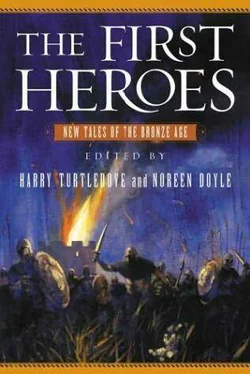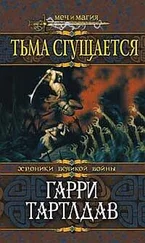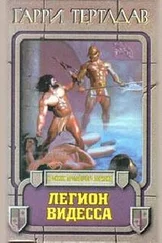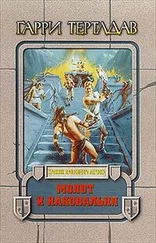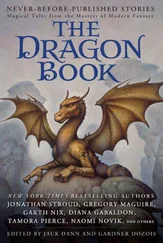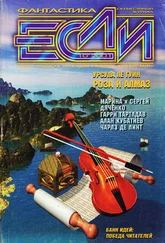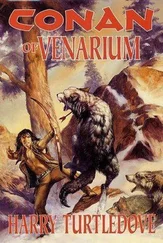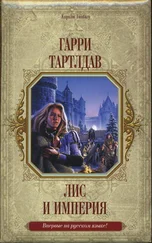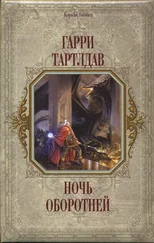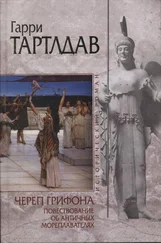Гарри Тертлдав - The First Heroes
Здесь есть возможность читать онлайн «Гарри Тертлдав - The First Heroes» весь текст электронной книги совершенно бесплатно (целиком полную версию без сокращений). В некоторых случаях можно слушать аудио, скачать через торрент в формате fb2 и присутствует краткое содержание. Жанр: Фантастика и фэнтези, на английском языке. Описание произведения, (предисловие) а так же отзывы посетителей доступны на портале библиотеки ЛибКат.
- Название:The First Heroes
- Автор:
- Жанр:
- Год:неизвестен
- ISBN:нет данных
- Рейтинг книги:3 / 5. Голосов: 1
-
Избранное:Добавить в избранное
- Отзывы:
-
Ваша оценка:
- 60
- 1
- 2
- 3
- 4
- 5
The First Heroes: краткое содержание, описание и аннотация
Предлагаем к чтению аннотацию, описание, краткое содержание или предисловие (зависит от того, что написал сам автор книги «The First Heroes»). Если вы не нашли необходимую информацию о книге — напишите в комментариях, мы постараемся отыскать её.
The First Heroes — читать онлайн бесплатно полную книгу (весь текст) целиком
Ниже представлен текст книги, разбитый по страницам. Система сохранения места последней прочитанной страницы, позволяет с удобством читать онлайн бесплатно книгу «The First Heroes», без необходимости каждый раз заново искать на чём Вы остановились. Поставьте закладку, и сможете в любой момент перейти на страницу, на которой закончили чтение.
Интервал:
Закладка:
Trapped outside with the wall at their backs, Hektor and the few companions with him tried to flee for the south gate in hope they might still win their way through to safety. But the Achaians swarmed over them, stabbing with their spears and swords.
When I heard them raise the triumphant shout: Achilleus! Achilleus! then I knew that Hektor was killed, and the hope of Troia with him. I must write to the Great King to tell him all these things. If he does not send his army, then the citadel will certainly fall, and all Wilusa will be lost. But now I see that the river has broken the dam of corpses, and a crimson floodtide is rushing to the sea, bearing the bodies of the dead on its crest.
The remaining allies of the Troians left them at the end of the last season, and they have not returned. For a brief time then, when Paris killed the great Achaian captain Achilleus, the Troians had hope, but no more. The city's defenders still fight from its walls, yet they must know the end will come soon. Their enemies are relentless. Last month, after Paris was killed, Priamos finally sent out heralds to Agamemnon offering to return the golden figure of Helene and all the treasure in his palace besides, but the Achaian king sent back word that the time to make restitution had passed.
I observe that the battering ram moves closer to the western gate, despite all the Troians can do to prevent it. The Achaians have covered the framework with wet hides and armored it with bronze, so that the men who propel it forward are protected from weapons hurled down from the walls above. A ram is what we call such a machine in the Land of Hatti, but men here name it a horse.
I have set my slaves to packing up my goods, everything I will be transporting back to Hattusa. There is no more reason for me to stay. The Great King has sent me his answer with a copy of his latest letter to Agamemnon:
My brother, I am willing to accept your oath as you have written it to me. In exchange I, the Sun, grant you your vengeance on Priamos and his heir for the sacrilege they have done. Before all else, men must respect the gods.
If you can take Priamos's citadel of Taroisa, all that is within it is yours. I will not send my army to prevent you or to defend the city against you. Out of respect for the gods I do this, because of the crime the king of Wilusa and his heir have committed against the gods.
But as you have sworn your sacred oath, then when you have taken Taroisa and all its goods, you will go to your ships and depart from my land of Wilusa, nor will any force of yours remain there, nor will you return to the lands that are mine. And if you return to Wilusa, breaking your oath, or to any of the lands that are mine, then I, the Sun, will send my chariots and my footsoldiers to destroy you utterly without mercy.
Now the Storm God of the Land of Haiti and the Storm God of Ah-hiya are witness to your oath, and they have seen your words. And if you fail to keep your oath, then shall the Storm God of Hatti and the thousand gods of Hatti destroy you and all your household and all your servants, and the Storm God of Ahhiya and all the gods of Ahhiya shall destroy you as an oathbreaker and a man hateful to all the gods.
So the Great King has written. I have to suppose that Tudhaliya has relied at least in part on my own reports in making his decision. I pray to the gods that it was the truth I told him.
Now the killing is finished, the ashes of the citadel are cooling, the taint of smoke is finally leaving the air. The Achaians have packed their tarred ships to the rails with their spoils of war, and many of them are already sailing away with weeping captive women stretching out their white arms toward their homeland as they see it fade out of sight.
But Agamemnon, at least, is keeping his word about leaving the Great King's lands.
I have my own goods packed and ready to leave, but I found myself first compelled to go one more time to the ruins of the citadel, to stand as a witness to all that has happened in this war. Men will say the end of Troia was the judgment of the gods on the crime of Paris, son of Priamos. Perhaps—yet brave men died here, men on both sides.
But what I saw today in the ruins . . .
Now I will not report this to the Great King. I may not ever speak of it to any man. But men do say that the golden figure of the goddess stolen by Paris was never recovered from the ashes of Priamos's citadel. Agamemnon had the palace searched before it was put to the torch, and all the city, but the golden goddess was never found.
Yet today in the ruins of Troia, I came upon a woman, one who had survived the sack of the palace, or so at first I supposed. A golden woman, with burnished hair and skin that glowed with softness, as a man would imagine a goddess. Before I could think, I blurted out her name: "Helene?"
The woman smiled at me, and though I am an old man, I felt the sap stirring in my veins at the sight of her. "You call me Helene? But Menelaos already has his wife again. She sits in his ship, weeping for dead Paris, sailing back to his palace in Sparta."
I had to take a breath before I could speak. "I did not mean Helene who is the wife of Menelaos." She beckoned me closer, and her face glowed with her beauty. No man could fail to desire her. No man could not want to carry her away. Her voice, so compelling . . . "My name is Eris. I used to belong to Paris, but I can be yours now. Will you carry me away with the rest of your captive women to Hattusa?" It may be that it was my old age which let me resist her temptation. If so, I am glad of it. "No, Lady. I will not." I left the ruins. I went back to my house and gathered my possessions to depart that place without looking back. For I know her. Even before I knew her name, I knew her. And now I know how poor dead Paris was deceived, the real reason the citadel of Priamos was doomed to destruction. I only pray to all the gods that the Land of Hatti is never likewise visited by Strife.
For the ancient Greeks, the bronze Age was the third generation of humanity: the first was the golden. Literature too has its golden ages, science fiction being no exception. During the golden age of science fiction the motifs, themes, and conventions of the genre, in forms seminal or conclusive, flourished: the imaginations of these authors, blossoming in the 1930s and '40s, were like the earth in the days of the Greek golden race, bearing fruit "abundantly and without stint." But they are, and were, science fiction's first generation, and only the gods are deathless.
At about midnight on July 31, 2001, one of the great heroes of the golden age passed away . Poul Anderson had enjoyed a life of seventy-four years and a writing career of more than fifty. In that half century Poul's works ranged from hard science fiction to high fantasy, exploring technological and social implications on the level of society and, especially, of the individual. He did so with a wit, sincerity, and insight that we deeply miss.
But eras rarely end with a definitive period. They tend to transform gradually, as what follows them comes from them. Poul knew this as well as any of us can.
The Bog Sword
Poul Anderson
For a moment I hesitated, suddenly I half afraid. Sunlight played in the crowns of trees along this quiet residential street and spilled warmth across me. A neighboring lawn lay newly mown, not yet raked, and a breeze bore me the scent. In a few hours Jane would be through work and bring Myrtis home with her from day care. Next month we'd vacation by the sea. Just planning it was joyous. Did I really want to risk any of that?
I'd been warned, I'd signed the waiver, but it was still possible to turn away. No. I straightened my shoulders, strode up the walk to the porch of the big old house, mounted the steps, and rang the bell.
Читать дальшеИнтервал:
Закладка:
Похожие книги на «The First Heroes»
Представляем Вашему вниманию похожие книги на «The First Heroes» списком для выбора. Мы отобрали схожую по названию и смыслу литературу в надежде предоставить читателям больше вариантов отыскать новые, интересные, ещё непрочитанные произведения.
Обсуждение, отзывы о книге «The First Heroes» и просто собственные мнения читателей. Оставьте ваши комментарии, напишите, что Вы думаете о произведении, его смысле или главных героях. Укажите что конкретно понравилось, а что нет, и почему Вы так считаете.
